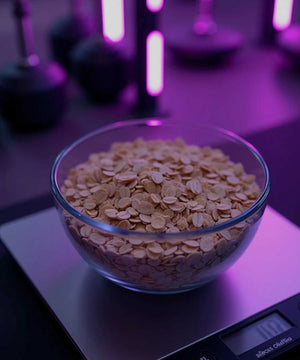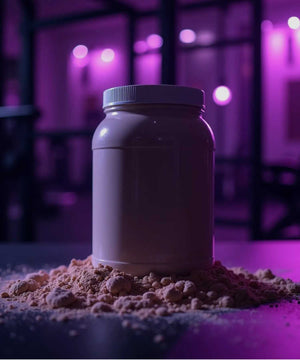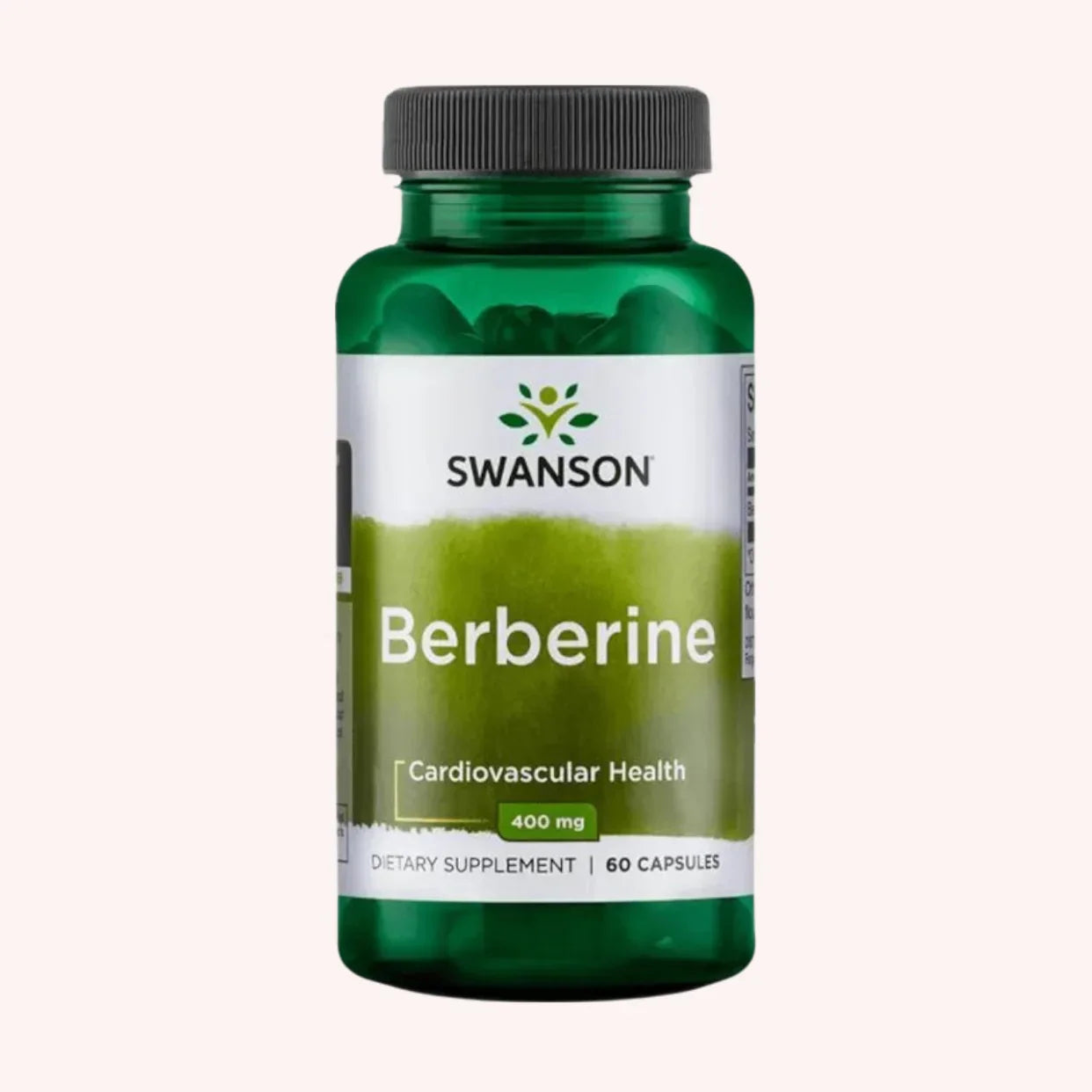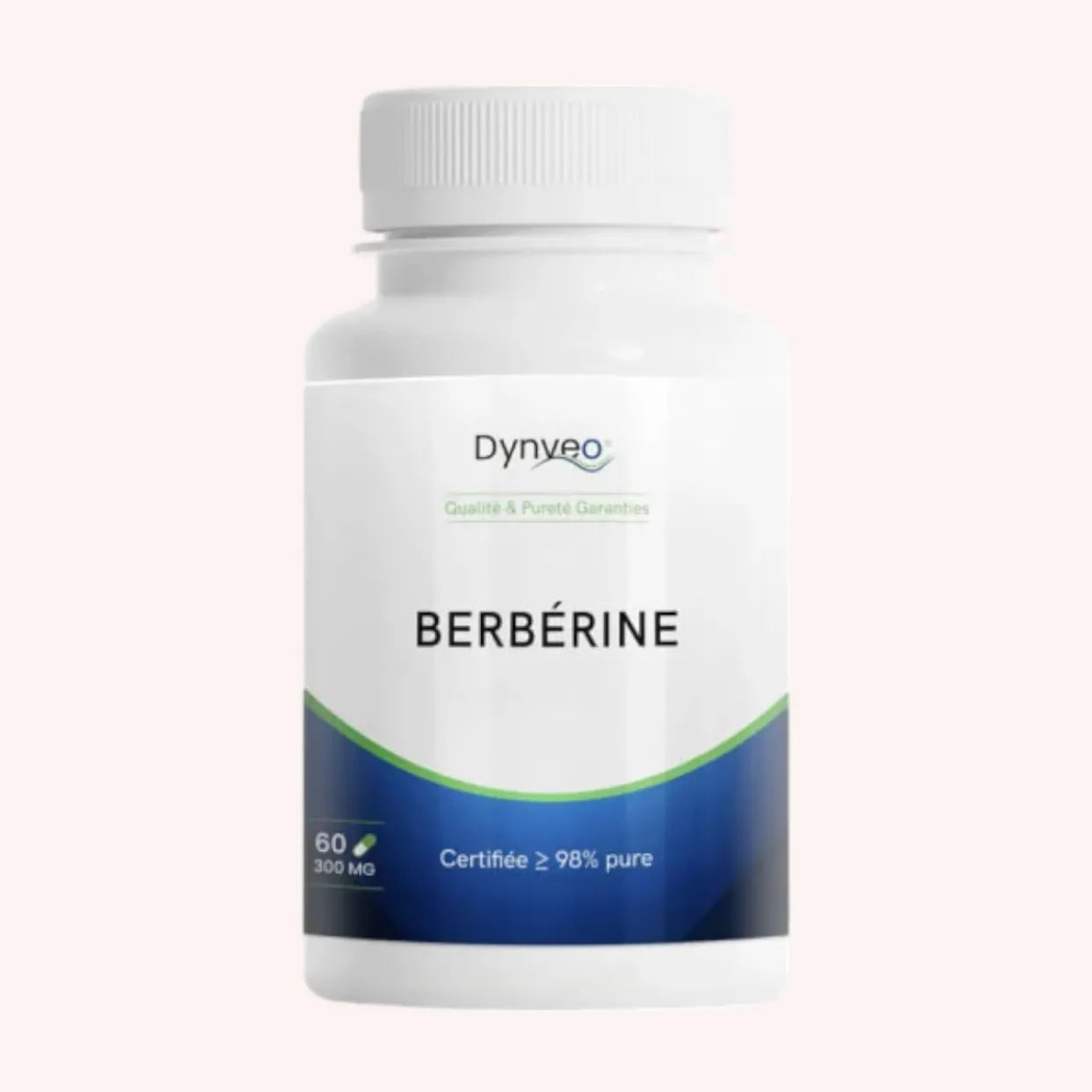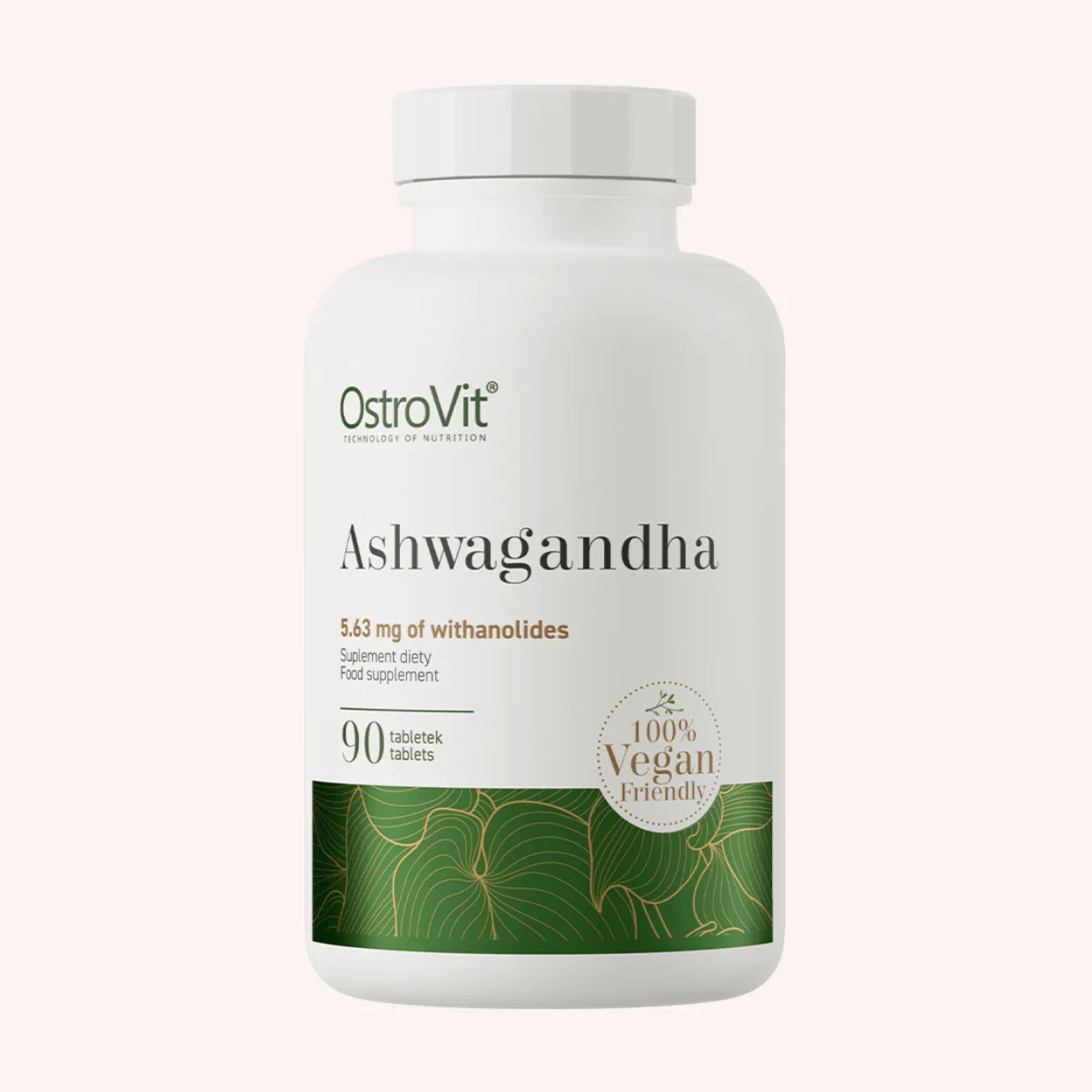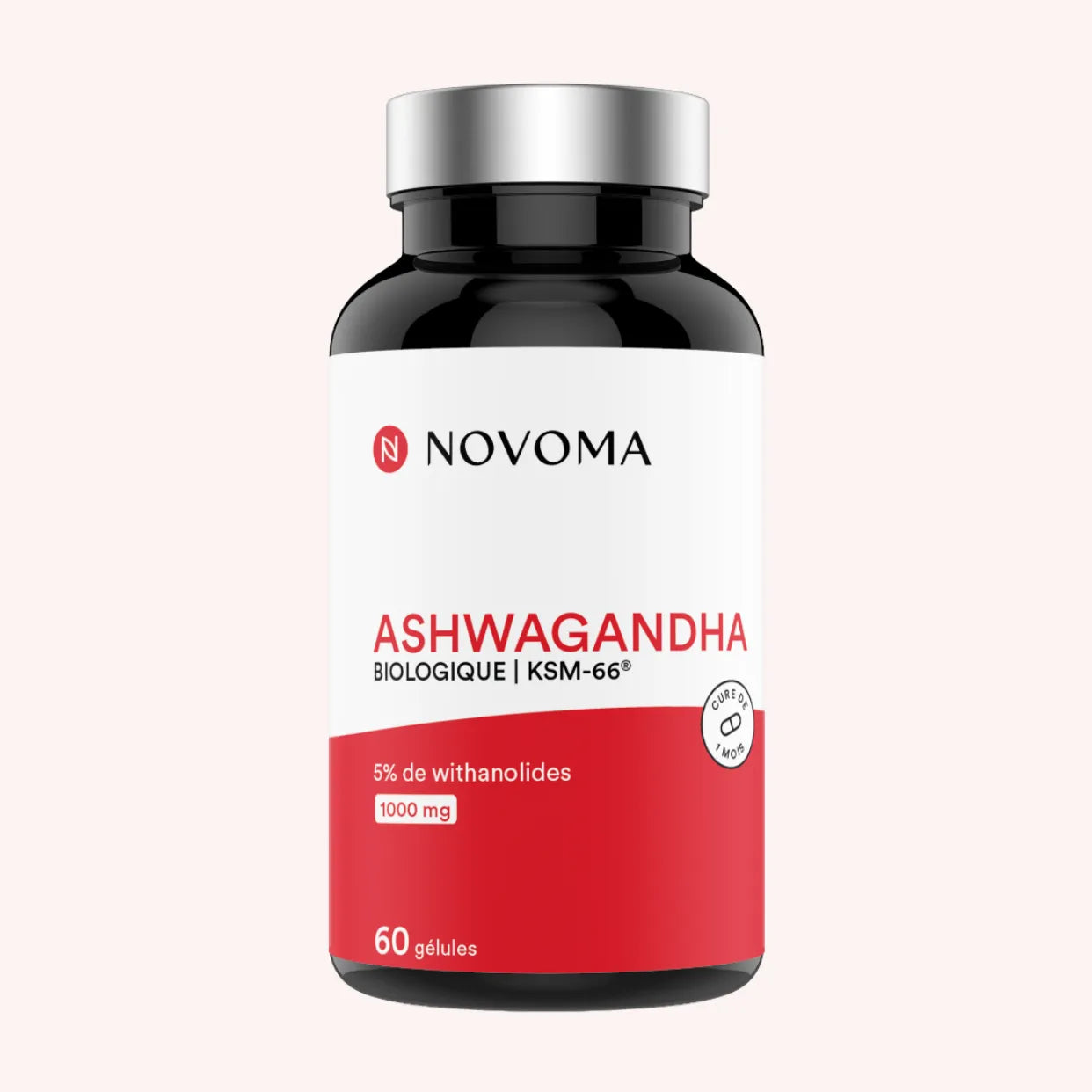Berberine is a plant extract derived from certain plants, known for its numerous health benefits. In recent years, it has gained popularity thanks to its role in regulating blood sugar , improving cholesterol and liver function, and supporting metabolic functions. But what are the real effects of this powerful extract?
In this article, we'll take a detailed look at the benefits of berberine and provide you with practical tips for effectively incorporating it into your routine.
What is berberine?
Berberine is a plant alkaloid with multiple virtues, found in several plants, mainly in Berberis vulgaris (barberry), but also in other species such as Berberis aristata and Coptis chinensis . These plants have been commonly used in China, India and Tibet for centuries for their numerous properties.
Berberine is particularly well known for its anti-inflammatory and antioxidant properties, making it an interesting supplement to support the immune system. Today, it is attracting increasing interest due to its beneficial effects on common metabolic conditions, such as high blood sugar , insulin resistance , and cholesterol disorders . This plant is found in the form of commercial dietary supplements , often in capsules or powder , and is used to improve cardiovascular and digestive health and to promote a balanced metabolism .
The beneficial effects of berberine
Berberine to regulate blood sugar
One of the most recognized benefits of berberine is its ability to regulate blood sugar levels. Blood sugar refers to the concentration of glucose (sugar) in the blood, an essential element for providing energy to the body's cells. Blood sugar levels that are too high or too low can have adverse effects on health. Berberine acts on several key mechanisms to improve insulin sensitivity , reduce glucose production by the liver, and optimize carbohydrate metabolism. By promoting a better balance of these processes, berberine helps maintain more stable blood sugar levels throughout the day, contributing to a more harmonious metabolism.
Improve cholesterol levels
Berberine plays a vital role in regulating cholesterol levels , a type of lipid (fat) circulating in the blood and necessary for the body to function properly. However, there are two main types of cholesterol: LDL (Low-Density Lipoprotein) cholesterol , often referred to as "bad cholesterol," and HDL (High-Density Lipoprotein) cholesterol , or "good cholesterol." High LDL cholesterol levels can lead to plaque buildup in the arteries. In contrast, high HDL cholesterol levels help remove excess LDL cholesterol, reducing this risk.
Berberine helps maintain an optimal lipid profile by reducing LDL cholesterol while promoting an increase in HDL cholesterol. Additionally, berberine can lower triglycerides, another type of fat found in the blood. These effects contribute to a natural approach to maintaining lasting and balanced heart health, complementing a healthy diet and an active lifestyle.
Berberine and Bodybuilding: Optimize Your Performance Naturally
Berberine is an increasingly popular supplement among athletes, especially those involved in bodybuilding, due to its many metabolic benefits.
- Improved insulin sensitivity: This plant alkaloid helps improve insulin sensitivity , which promotes better glucose uptake by muscle cells. This means that muscles can better recharge with glycogen , their main source of energy. A more efficient glucose metabolism not only allows for faster recovery after training, but also better control of available energy during strength training sessions.
- Supplements and Synergies: Some people choose to combine berberine with other natural supplements like turmeric , which also supports metabolic health and fat management. These synergies can enhance the effects of berberine, but it is essential to consult a professional before starting any supplement combination.
How to Take Berberine: Practical Tips
Forms of Berberine
Berberine is primarily available in supplement form, such as capsules or powder . To maximize its benefits, it is recommended to take doses between 400 mg and 1,000 mg per day , ideally divided into two or three doses throughout the day. This distribution helps maintain a constant level of this plant alkaloid in the body and allows you to fully benefit from its beneficial effects. Although berberine is a plant-based and natural supplement, it is always advisable to consult a healthcare professional before starting any supplementation, especially if you are already taking other supplements.
Dosage and precautions to take
Although this supplement is generally considered safe for most people, it is important to follow the recommended dosage. Some people may experience bloating, especially when first taking it. These side effects are often mild and can be alleviated by taking berberine with meals . If you experience persistent discomfort, it is best to reduce the dose or stop supplementing and consult a doctor.
It is also important to discuss with a healthcare professional before starting berberine if you have a history of digestive disorders .
When to take Berberine?
To optimize the absorption and effects of berberine, it is recommended to take it with a meal . This not only improves absorption in the digestive system, but also reduces the risk of side effects like bloating. Depending on your schedule and preferences, you can divide the daily dose into two or three doses : For example, one in the morning, one at noon, and one in the evening.
Conclusion: Reasons to adopt berberine in your routine
In summary, berberine is a natural supplement with numerous health benefits. It helps regulate blood sugar, improve lipid profiles, and support liver health. This supplement offers effective solutions for those looking to optimize their metabolism and manage common health issues.
However, although it has many benefits, it is always important to consult a doctor before adding this supplement to your diet.
Sources:
- Zhang, L., Wu, X., Yang, R., et al. (2020). “ Effects of Berberine on the Gastrointestinal Microbiota”. Frontiers in Cellular and Infection Microbiology. DOI: https://www.frontiersin.org/journals/cellular-and-infection-microbiology/articles/10.3389/fcimb.2020.588517/full
- Pirillo, A., & Catapano, A.L. (2015). "Berberine, a plant alkaloid with lipid- and glucose-lowering properties: From in vitro evidence to clinical studies". DOI: https://pubmed.ncbi.nlm.nih.gov/26520899/

